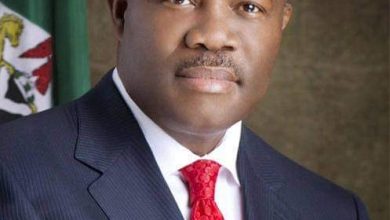Inflation Rate Drops to 17.38% in July 2021, Beating Early Analysts Forecasts

The average prices Nigerians pay for regular commodities rose by 17.38% Y-o-Y in July 2021 this was according to a recent release of NBS data. Annualized inflation fell for the fourth straight month on the back of a near-persistent high base effect. As July drew to a close, the speculative demand for FX shot up due to the stoppage of the CBN weekly sale of dollars to Bureau de Change (BDC) operators. However, this was transient, and the expected pass-through effect on domestic prices did not hold as commercial banks quickly stepped up to the plate.
Analysts believe that inflation remains a hot button issue. Even though rates had declined since April 2021, the indicator remains high. The domestic inflation rate has shed as much as 39 basis points, moderating the most in July and beating the expectation of several economists who had estimated inflation figures in the region of 17.6%. Preceding the release of the NBS data on Tuesday, the CBN had sustained its optimism, pencilling in a year-end inflation figure of less than 13%, while the NBS projects single-digit inflation by the middle of 2022. Notably, in July, Core CPI- which measures relative prices of a basket of goods and services excepting food and fuel- increased by 13.72% Year-on-Year, outdoing economists forecast of 13.6%, and reverting to the upward trend it maintained before it fell last month.
Are the dog days of summer over? not quite.
Headline Inflation
According to the July inflation data, headline inflation fell from 18.17% in March to 17.38% in July for the fourth straight month. The recent data implies that general commodities are 17.38% more expensive than they were in the corresponding period of 2020(see Chart 1).
On a month-on-month basis, the headline index increased by 0.93%, indicating that prices of goods and services within the economy are 0.93% higher than they were in June. Recall that in June, prices had relative to May prices, risen by 1.06%. The 12-month average rose from 15.9% in June to 16.3% in July, showing that in the last 12 months, prices have on average increased by 16.3%.
Core Inflation
A review of the CPI data for July shows that the sub-index increased by 13.72%, confirming that the basket of non-food items rose by 13.72% in July 2021 relative to July 2020. Financial analysts consider core CPI a more reliable indicator since it protected from fluctuations in petroleum and food prices. (see Chart 2).
In June, Core inflation had moderated to 13.09% Y-o-Y giving the investing public assurances about the long-run direction of inflation. However, the recent data for July suggests, contrary to earlier signals from the June data, that inflation was expected to rise in the medium to long term. The major contributors to the rise in the core sub-index were medical services, shoes and other footwear, pharmaceutical products and vehicle spare parts.
Food Inflation
Further analysis of the CPI data showed that the Food index rose by 21.03% Y-o-Y, implying that the prices of staples increased by 21.03% in July 2021 compared to July 2020. The food index had increased by 21.83% in June 2021, sustaining the downtrend in annualised food inflation. The Food index also rose on a month-on-month basis by 0.86% as against 1.11% in June – an indication that food prices rose slower in July than they did in June (see Chart 4).
The Subnational: Kogi, Kwara and Bauchi continue to lead from behind
The month of July saw Kogi state again top the list of subnational with the highest inflation with an inflation figure of 22.49%. Indeed, analysts note that this has been a notable trend for some time, indicating that prices have been higher in the state than in previous years due to supply constraints. Some reviewers have suggested a need to review the composition of the customised basket of items that the NBS employs in computing the CPI of Kogi state. Bauchi state came in the second with an annualised inflation rate of 22.04%, while Kaduna ranked third with a 20.42% increase in its annual CPI. (see Chart 4).
Kogi state also recorded the highest rise in the Food CPI in July with an inflation rate of 28.51% Y-o-Y; this is lower than the state’s inflation for June-30.34%. Enugu retained its second position from June, on the list of states with the highest annual rise in food prices with an inflation rate of 24.57%, while Lagos ranked third with an annualised inflation rate of 24.04% (see Chart 5).
Hopping Abroad-Inflation Bites into ‘God’s Own Country’
The Global economy seems to be experiencing a worrisome streak of rising prices as a collateral effect of the large government intervention in pump-priming economies. In the United States, aggressive demand funded by the Joe Biden administration’s economic stimulus of $1.9trn along with the gradual ease of the COVID-19 restriction has spurred an notable rise in consumer prices with the inflation rate climbing to 5.4% in both June and July. The figure was significantly higher than the 2% target of monetary authorities. The authorities have maintained that the surge was transitory while expressing readiness to pull the plug as soon as inflation gets out of control. In contrast to Nigeria, the policy options available to the US authorities are clear, especially following the reduction in core inflation and an impressive jobs report. Analysts expect the asset purchase programme to taper by September, and interest rates could likely rise sooner than projected. Meanwhile, Brazilian inflation in June rose to its highest rate in five years, as the annualized inflation rate of 8.4% doubled the country’s year-end target. The rise was the reason for the significant increase in its base rate in July.
Outlook for Inflation
Following the passage of the Petroleum Industry Bill, the removal of fuel subsidies appears imminent. Analysts express concerns about its knock-on effect on the general price level. The GMD of NNPC had stated earlier in the year that PMS would ordinarily sell at a price higher than Automotive Gasoline Oil (Diesel) which currently sells for N297/litre. In other words the pump price of PMS could rise by as much as 70% in the event of subsidy removal. Consequently, prices may spike on the back of rising fuel prices, which would feed into the inflation rate’s core component, seeing that commercial transporters could pass on the additional burden to passengers. The situation with insecurity in and around the country also would account for a rise in farm gate prices, while transportation and logistics services could also cost more.
As the Central Bank has the mandate to support growth and keep prices stable, the money market regulator has kept a close eye on domestic average price increases. CBN Governor, Godwin Emefiele and other members of the MPC had at the last MPC meeting held between the 26th and 27th of July acknowledged the recent deceleration in inflation but believed that the high level of inflation would gradually “ trend downward’.
The CBN has kept interest rates at 11.5% for the past 12 months. The inflation rate has remained high throughout the year, no thanks to significant fiscal gaps. The funding of the budget deficit and foreign exchange (FX) shortage has continued to create a backlog of FX demand weakened the Naira. Despite the recent rally in oil prices in July 2021, the reduction in remittances and capital importation has reduced dollar inflows and squeezed the value of the Naira. In the near term, the headline inflation rate movement suggests that the inflation rate may have peaked even though investors may still contend with the rise in core inflation in the longer term.






